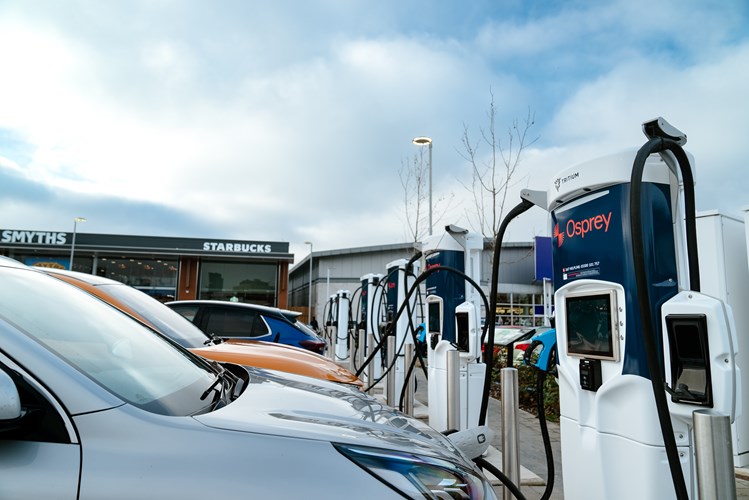This is rather worrying, this is from Parkers website, just pointing out were is the incentive
The price of charging an electric car using a public rapid charger can be more expensive than filling up with diesel according to data gathered by Parkers. The soaring price of wholesale gas and electricity has forced up the cost of charging a typical electric car, with £10 of charge taking you less far than the same amount of diesel.
This rise in EV charging begins to bite just as
petrol and diesel prices have started to creep up again after an autumn of reductions. Despite the spiralling costs of using public electric car chargers, 26% of Parkers readers are still actively considering an EV for their next car.
The RAC says that the average price per kilowatt hour (kWh) of a UK rapid charger is £0.63, but it can cost a lot more. Osprey announced in August 2022 prices of its rapid chargers to £1 per kilowatt hour before rapidly reversing that back to £0.79. Tesla charges an average of £0.77 per kWh for non-Tesla drivers, and the second largest rapid network, Gridserve, charges up to £0.66 per kWh.
You may also like:
Large Electric Car of the Year 2023: Kia EV6 Plug-in Car Grant axed How much does it cost to change an EV battery?
Refilling petrol vs public charging prices
The gap between petrol, diesel and electric has closed especially when using public chargers. Using Parkers’ own
Miles Per Pound data gathered from official
WLTP testing, we can directly compare how much it costs to fuel your car – by saying how far your money will take you when using public chargers at the RAC’s average cost. Putting £10 in your tank is now working out cheaper than £10’s worth of plugging in at a typical fast or rapid charger.
- Audi Q5 (2.0 TFSI petrol) vs E-Tron
Petrol takes you 46 miles for £10, whereas electric on a public charger takes you 35 miles
- BMW 4 Series Gran Coupe (420d) vs i4
Diesel takes you 73 miles for £10, whereas electric on a public charger takes you 44 miles
- Citroen C4 (110hp diesel) vs e-C4
Diesel takes you 84 miles for £10, whereas electric on a public charger takes you 59 miles
- Mercedes-Benz GLA (2.0 petrol) vs EQA
Petrol takes you 43 miles for £10, whereas electric on a public charger takes you 52 miles
- Peugeot 208 (110hp diesel) vs e-208
Diesel takes you 89 miles for £10, whereas electric on a public charger takes you 56 miles
- Vauxhall Mokka (110hp diesel) vs Vauxhall Mokka-e
Diesel takes you 80 miles for £10, whereas electric on a public charger takes you 50 miles




 ) the service was pants even before the train strikes I would have to rely on my car.
) the service was pants even before the train strikes I would have to rely on my car.




































